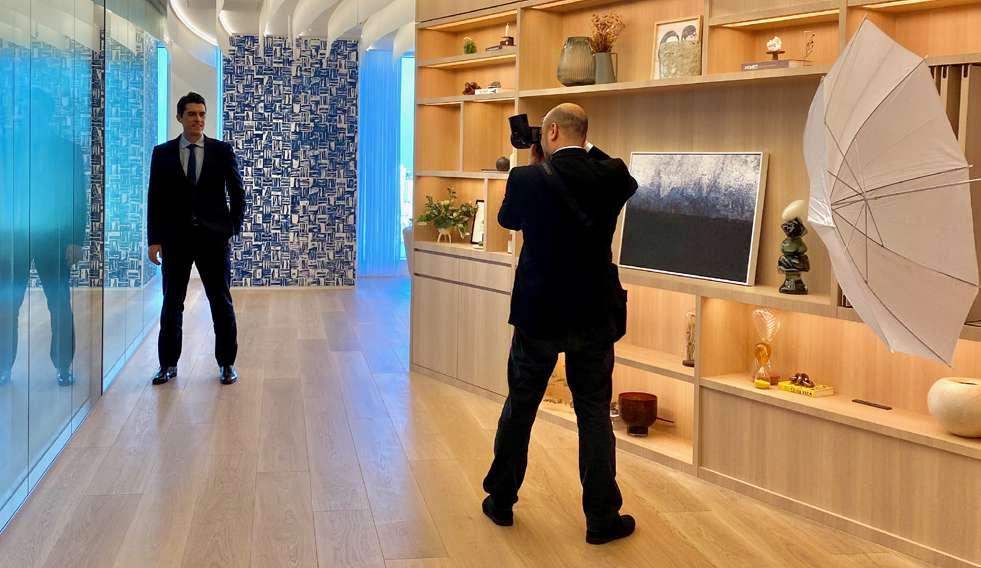
10 minute read
MARKETING
SPEND YOUR WAY OUT OF CRISIS
PR and marketing experts say commit assets now for benefit later
Advertisement
By Julian Ryall
In a time of economic crisis—and there is little getting away from the fact that’s exactly where we find ourselves at the moment—a company’s spending is almost always on the chopping block. The feeling is typically that it’s best to hang on to your human assets and reduce outlays in lessessential areas—and marketing is often a target.
For companies that rode out previous threats to their survival, such as the 2007 global economic crisis or the Great East Japan Earthquake and Tsunami of March 11, 2011, the temptation might be to once again batten down the hatches to get through the coronavirus pandemic. But marketing experts, backed by plenty of compelling statistics, say companies need to take the counterintuitive route and actually increase their advertising and marketing budgets.
The bottom line, they say, is that out of sight is out of mind—and that equates to being off the shopping list.
DEBBIE HOWARD Chair of market research CarterJMRN President emeritus, ACCJ HISTORIC HARDSHIP Debbie Howard, chair of market research agency CarterJMRN K.K. and a president emeritus of the American Chamber of Commerce in Japan (ACCJ), said the present situation is arguably worse than any similar crisis in living history, as it combines a public health emergency and a sharp economic contraction—the former causing the latter by forcing businesses to curb activity and people to reduce consumption. Governments then must attempt to mitigate the damage through hugely expensive support measures—and all this is happening on a global scale.
“When we were in the middle of the [2008] economic crisis, and then when the Tohoku earthquake hit in 2011, I thought things were bad,” she told The ACCJ Journal. “But this is much worse. It’s all of those things at the same time, and the duration is much longer.”
Inevitably, the situation has impacted various sectors to wildly differing degrees, with companies in travel and hospitality among the hardest hit, along with some retailers.
Kevin McAuliffe, president of consumer products company Newport Ltd., said many personal care, food, and car-
KEVIN McAULIFFE President of consumer products Newport
MARKUS WINTER Founder and co-CEO Yuzu Kyodai

related items were largely unaffected by the Lehman shock, and it only took a week after the March 11 tragedy before sales had recovered.
“This time, all of Japan is impacted—Tokyo the hardest—and it has lasted much longer,” he said. “Here we are, six months after the lockdown, and there is still lower-than-expected consumer spending.”
While sales of some products slumped 80 percent at the outset of the crisis, and others are still down by about 50 percent, McAuliffe said online sales are faring well and the company has shifted to “more focused promotions and heavier use of social networking services.”
Under the circumstances, with people being urged to stay home, limit their interactions outside, and follow social distancing guidelines, it’s a sensible approach. McAuliffe added, “With more and more retail now occurring online, it is important to build brand recognition and keep your products in front of customers.”
TURN THE TABLES Howard agrees this is a good start, and insists that a crisis can also be turned to a company’s advantage.
“If your business is down, it’s a trigger point to make a longerterm investment,” she said. “Marketing in the middle of a crisis is probably not going to have much effect in the short term, but you are reinforcing the foundations so that when business recovers, your curve of growth will be higher than your competitors’. If you’ve been doing your marketing properly in a downturn, then your product or service is going to be at the forefront of consumer minds when things pick up.”
The figures support this philosophy. A recent article in Harvard Business Review stated that the Reckitt Benckiser Group, which is behind such brands as Clearasil, Air Wick, and Dettol, defied conventional wisdom by ramping up advertising outlays by 25 percent in the aftermath of the 2008 financial crash. Revenues rose eight percent and profits climbed 14 percent while rivals that had reduced advertising spending saw profits decline 10 percent or more.
Markus Winter, founder and co-CEO of brand strategy agency Yuzu Kyodai, agrees the pandemic can be an opportunity—as have past challenges.
“In March 2011, the effect of marketing translated into two ways. First was, How can my company be seen as responsible, as in doing our part for society? This usually took the form of corporate social responsibility campaigns, such as convenience store chains offering free shipments to affected areas and so on,” he said.
“Second—and most critical for food companies—was, How can I show that my products are safe? This was a lot about sourcing and creating stories of origin to show that a company did not source from Fukushima, for example.
“Interestingly, those two questions—How can I be seen as responsible? and How can I show my product or store is safe?—are coming back again right now with Covid-19.”
Winter points to examples, such as Zero Contact Delivery by Domino’s Pizza Japan, Inc. and Uber Eats, as well as Kura Sushi, Inc.’s move to equip all plates with plastic covers at their conveyor-belt sushi bars.
“People do notice these things,” he said. “A study found that people are twice as likely to opt for a place with proper countermeasures than for one where they feel less safe. It’s about showing that you are being responsible, which requires more than just the bare minimum of wearing masks and providing hand sanitizer.”
Similarly, innovations have made some brands hugely popular. Uniqlo Co., Ltd. adapting its AIRism breathable fabric technology to facemasks is one example.

PHOTO: C BRYAN JONES
LIFE.14's Tran shooting photos of ACCJ President Peter Fitzgerald for The ACCJ Journal at the Google offices in Shibuya.

CRISIS COMMS Ashton Consulting Limited’s Brendan Jennings made the point that, in a time of crisis, communications strategies cannot afford to be purely outward looking. As people are forced to work from home, companies must get critical messages across to employees to compensate for the loss of physical proximity.
“Employees and investors are the two groups probably most sensitive to uncertainty, and clear messages, effectively communicated—even when the news is bad—improves confidence in leadership and the company’s ability to get through the downturn,” he said. “Health, safety, and employee welfare have been the focus of communications for all our clients for many months, in a way that even the 2011 earthquake and nuclear disaster did not necessitate.”
Global companies understand the urgency of crisis communications, Jennings said. “But where they may struggle is grasping and responding to the expectations of local-market audiences. Companies that perform well during a crisis share two important characteristics: they have invested in building a core group of communications professionals who understand local audience expectations and they make these people part of the management team shaping the company’s crisis response strategy.”
The business world has adapted “remarkably quickly” to life online, he added, but companies need to “keep improving fluency with virtual tools and the emerging new business and cultural norms.”
ADAPT AND PROMOTE Antony Tran, president of visual production agency LIFE.14 Inc., said his company had to be nimble from the outset of the crisis as international summits and other events were canceled with little notice.
“We worked from home and took advantage of the extra time to develop new products and services, such as our Live Webinar Package and Virtual Tours, by brainstorming how our knowledge and technology can be helpful in this situation,” he said. Promotion work shifted almost entirely online, but Tran was proactive in reaching out to potential collaborators, an approach that worked and brought in contracts from national television programs and a number of embassies.
Robert Heldt, president and co-founder of digital content creation and communication agency Custom Media KK, which publishes The ACCJ Journal, said the uncertainty surrounding the likely duration of the coronavirus pandemic makes it very challenging for businesses to plan their futures.
“But it is very important for companies to maintain marketing spend to ensure that they are communicating with and retaining loyal customers at the same time as reinforcing their core brand position,” he said. “This also helps to maintain and
BRENDAN JENNINGS Ashton Consulting ANTONY TRAN President LIFE.14
ROBERT HELDT President and co-founder Custom Media KUMI SATO President and CEO Cosmo ACCJ chairman emeritus

build a strong brand that customers will recognize and trust, embraced digital communication far more readily than their as well as the opportunity to reach new customers or segments Japanese counterparts. that you were not previously servicing. “Japan can turn very quickly when it needs to, but it doesn’t do
“Companies need to proactively engage in corporate social that unless it has to. It’s almost as if it has to be forced to do things responsibility (CSR) to pay attention to social, ethical, and ecolo - and people need to be in a crisis before anything changes,” she said, gical consequences. When done well, with good intentions, CSR adding that the good news is that the change is happening and a also creates goodwill with customers and inspires employees complete return to the previous model is unlikely. to help others,” said Heldt. His team recently won the Best CSR But, she admits, marketing is so much harder than it used to be. Award at the 2020 Best Business Awards for their Connect “Obviously, there are lots of tools that make marketing digital marketing platform, launched in March, to help SMEs, easier, but they also make it easier for your competitors, so you entrepreneurs, local businesses, and charities in Japan affected really have to think about your messaging. It’s not just about by Covid-19. people knowing who you are, although that will always be
Kumi Sato, president and important, it’s that you have CEO of strategic communication It is very important for companies to to really stand for something consultancy Cosmo and ACCJ chairman emeritus, concurs maintain marketing spend to ensure value-wise, especially when the economy is in a deep with the need for a company that they are communicating with and recession,” she said. to continue to build its brand and brand-recognition from retaining loyal customers. “You have to stand for something that is highly relevant a long-term perspective while and that provides a very strong simultaneously promoting CSR initiatives. point of difference on value,” she added. “And the only way you
“You need to prioritize the message, partly because the can do that effectively is through marketing. Now, more than public has a short attention span but also because there is a ever, it’s important to create a relevant promise.” lot of competition out there, so it’s good practice to constantly Winter said he’s certain that he is not the only consumer disseminate your CSR message, which will be of help in drawing up a bucket list of the places he wants to vacation, the future even if it cannot help you immediately. Say those the restaurants he wants to visit, and the shops in which he messages over and over again to make them sink in among intends to spend money as soon as conditions permit. consumers in an overcrowded information space.” “Those lists are being made right now, not when some kind
Howard said the United States appears to be faring better of post-corona is here,” he said. “A company wants to make sure in terms of marketing, largely because companies have that they’re on those bucket lists once this is all over.” n





